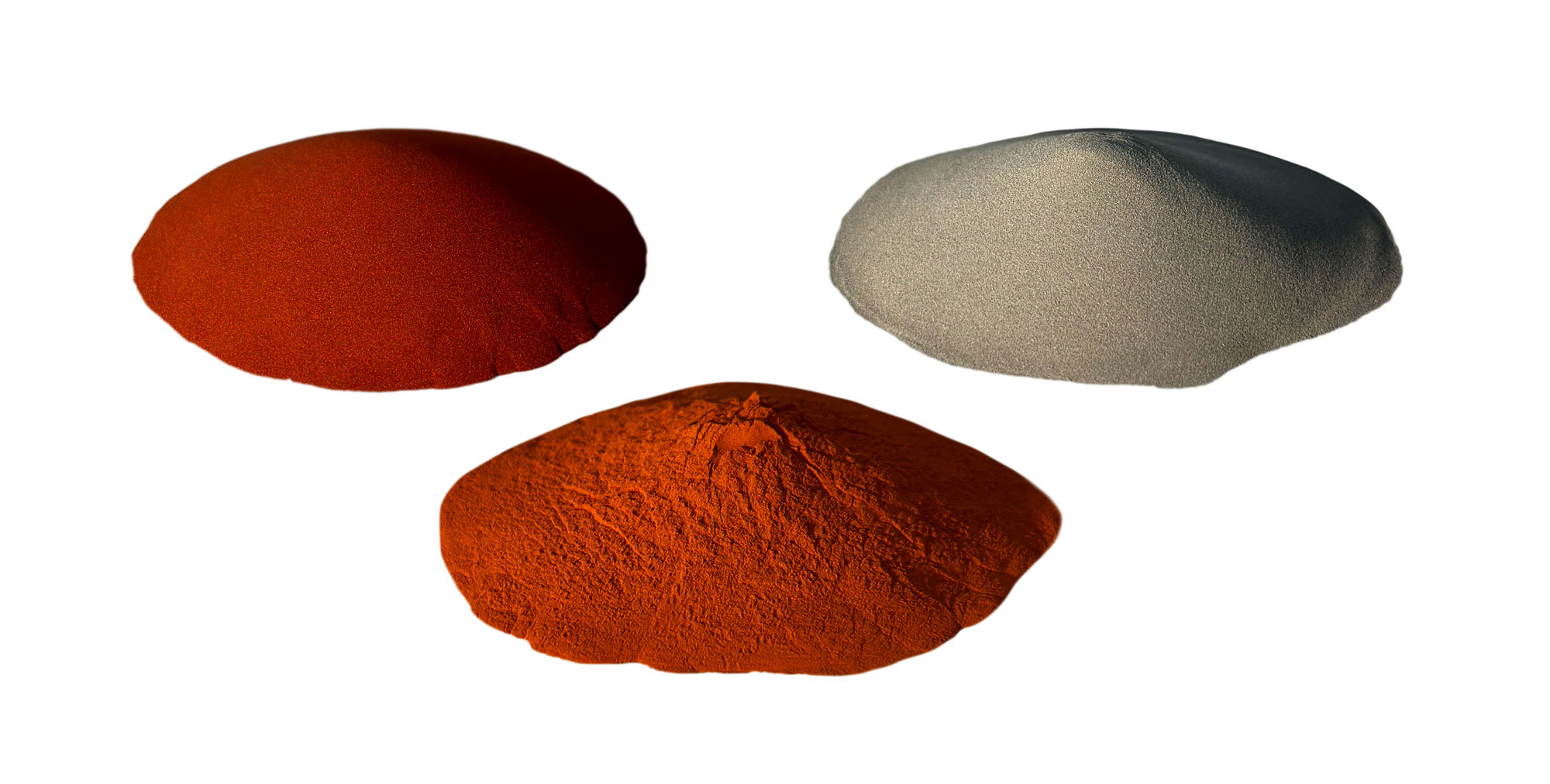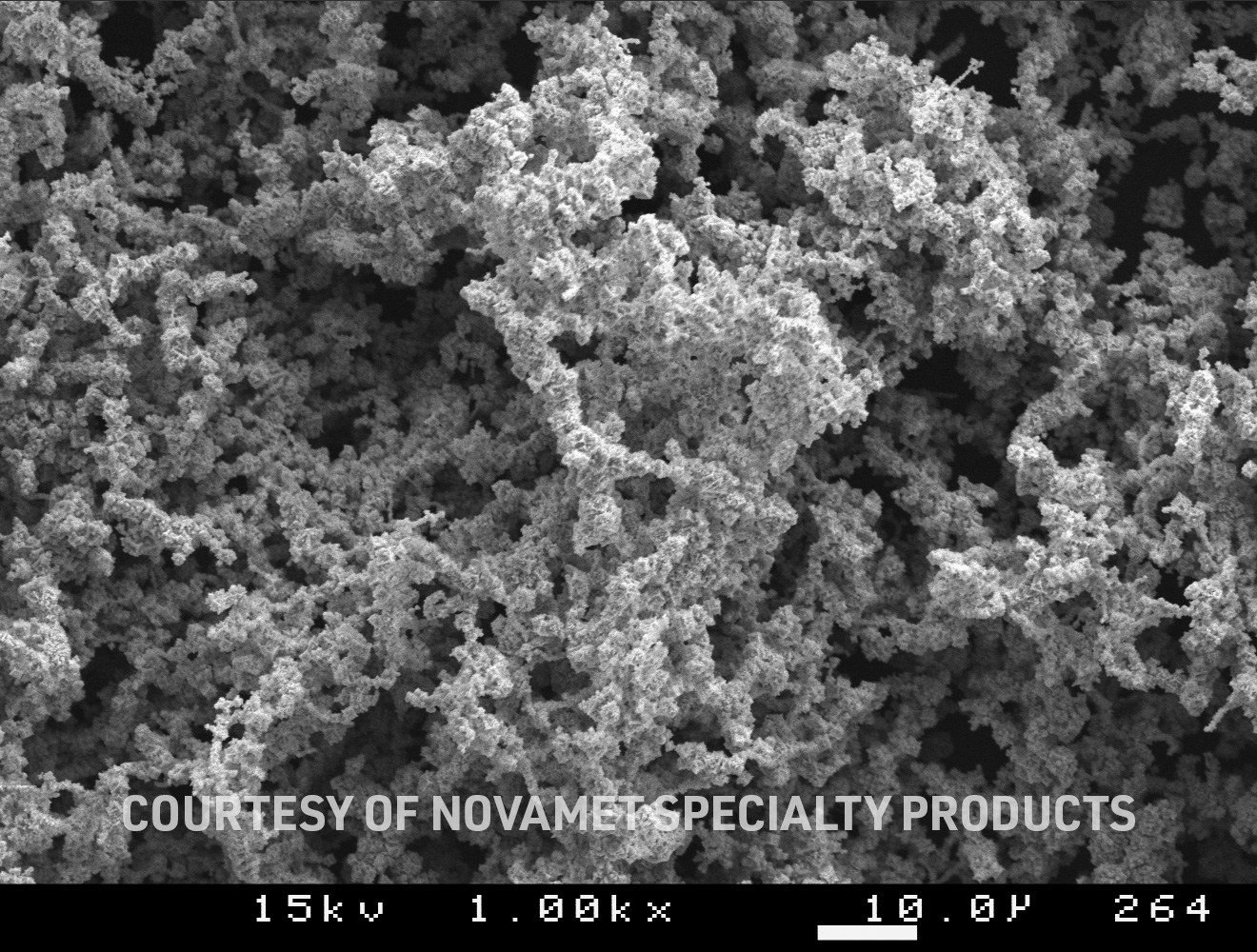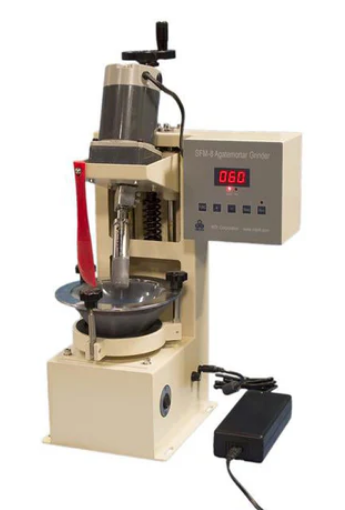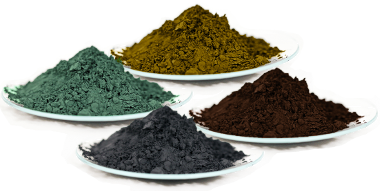What Makes a Powder?
Engineering Excellence on the Micro Scale
In almost every research lab and manufacturing environment, powders form the backbone of innovation. From advanced energy storage and ceramics, to metallurgical processes, catalysis and pharmaceuticals, powders play a central role in formulation, performance, and even commercial viability.

Despite their widespread value in scientific and industrial environments, the importance of understanding powder characteristics can be underestimated. Two batches with the same chemical composition can exhibit diverging behaviours, depending on how they have been manufactured or processed. Understanding the impact of production methods, and range of characteristics a powder can have, is crucial to exploiting the full potential of every powder batch.
Defining a Powder
A powder is defined as the finely divided form of a material, roughly 100 nm to 200 µm in size and possessing a high surface area. However, a powder is also much more than a collection of tiny solids. At these dimensions, powders can flowlike fluids, pack densely, or be suspended in liquids.
The utility of a powder relies on more than just its chemistry. Each powder will have a set of unique characteristics, with factors such as morphology, size distribution and purity being integral to determining the powder’s overall performance and functionality.
Therefore, PI-KEM powders are engineered with rigorous attention to:

- Particle Size Distribution: Powders are collections of particles of varying size. Controlling the size distribution is crucial, since it strongly affects how powders pack and flow. By tightly controlling size variance, we enable researchers to achieve predictable dissolution rates, packing densities, and reaction kinetics
- Morphology: Particle shape and surface texture influence flow, compaction, and interaction with other materials. Spherical particles tend to enhance flowability, while angular or porous particles may offer increased surface area
- Surface Chemistry: Subtle variations in surface energy, hydrophobicity, charge, or contamination (e.g., oxides, moisture) significantly impact wettability, agglomeration, and compatibility with other formulation components
- Flow Properties: Powders can display both solid-like and fluid-like behaviours, with flow influenced not just by shape and roughness, but also by external conditions like humidity and electrostatic charge. Controlling powder flow is critical for handling and manufacturing, especially when precise filling, mixing, or layering is required
- Purity and Consistency: All our powders are produced through controlled and unique processes, utilising high quality feedstock. This allows us to consistently supply high purity powders, with predictable and repeatable specifications.
Critically, these properties are interdependent and sensitive to both upstream processing (e.g., milling, atomisation) and downstream handling (e.g., storage, humidity exposure). Without meticulous quality control, powders can introduce variability into high-value research or industrial processes.

Shaping Performance Through Production
The method by which a powder is produced has a direct effect on its properties. Key methods include:
- Mechanical milling/grinding: Mechanical forces used to break down bulk solids into finer particles (e.g., ball milling, jet milling, hammer milling). Attrition milling is a high-energy process using added media to grind and shear particles. Milling can also be applied to metal powders to modify the particles size, change the particles shape or to mix two or more materials
- Atomisation: Molten metal is broken into droplets by high-speed jets of gas or water, and then rapidly cooled to produce solid powder particles. Gas-atomisation produces spherical powders, with a controlled size range suited to metal injection moulding or additive manufacturing
- Chemical synthesis: Tightly controlling the chemistry to form small particles from solution, often used for high-purity or nanostructured powders. Precipitation, reduction or decomposition of chemical precursors produces powders with highly specified properties.
Other powder production techniques include spray drying, freeze drying, electrolytic deposition and spray pyrolysis. The choice of production method will be determined by chemical composition, powder specification goals, and budget/scalability constraints. In all cases, the choice of method affects the powder’s size, shape, internal structure and trace contaminants.
Application-Driven Powder Design
As a result of their unique characteristics and behaviours, powders have several specialised applications across a breadth of industries.
.jpg)
- Additive Manufacturing: In 3D printing of metals or ceramics, powder characteristics are crucial for reliable builds. Smooth particle flow and packing ensures each layer retains an appropriate density, while consistent particle size and shape contribute to the mechanical properties of a design. AM parts can be used in various industries including aerospace, automotive, medical, dental and electronics. Our partnership with Ultra Fine allows us to supply high-purity metal alloy powders, with strictly controlled chemistry and particle size
- Electronics & Semiconductors: Microelectronic devices use powders in components like conductive pastes, sintered contacts, and ceramic capacitors. Here, purity and precise chemistry are paramount. Even trace impurities in a metal or oxide powder can drastically alter conductivity or dielectric behaviour
- Energy Storage: Energy storage systems – particularly lithium-ion batteries, solid-state batteries, and fuel cells – rely heavily on powders as core functional materials. These powders are used in electrodes, electrolytes, and additives, where their behaviour and characteristics directly influence storage capacity, energy density, charging speed, lifetime, and safety
- Coatings and Paints: Powders can be dissolved within solvents to form liquid coatings, or can be applied directly to surfaces and then cured to produce a solid thin film. Powders can be engineered for enhanced dissolving or spraying, and tailored for specific coating purposes, such as surface protection or enhancement. High-quality, consistent powders are vital to creating coatings that improve the performance and functionality of a product.
Across all these fields, engineers select powders where size, morphology and chemistry are tuned to the application. At PI-KEM, we work with our supply partners to ensure that each batch meets tight specifications, enabling our customers to excel in their research or production goals.
PI-KEM: Unlocking the Full Potential of Powders
In a world where material performance is crucial to product success, partnering with PI-KEM ensures you have a supply partner who understands both the science and the challenge ahead.
Our powders are designed for high-performance applications, delivering chemical purity, ease of processing, and optimised performance. When innovating with powders, make sure to choose formulations that meet the experimental requirements.
We offer an extensive range of high-purity powders, all engineered to precise specifications designed to enable advances from laboratory research to scalable manufacturing:
- Metals
- Non-metals
- Ceramics
- Oxides
- Specialised compound and alloy powders

Our team collaborates closely with researchers and industry to support you in determining the most suitable material for each application, while our strong supplier relationships also allow us to adapt and customise powders to your unique requirements.
To learn more about how we can support your powder research and innovation goals, speak to a performance powder specialist today
📞 Call us on 01827 259250
📧 Email sales@pi-kem.co.uk
📝 Complete our online enquiry form

